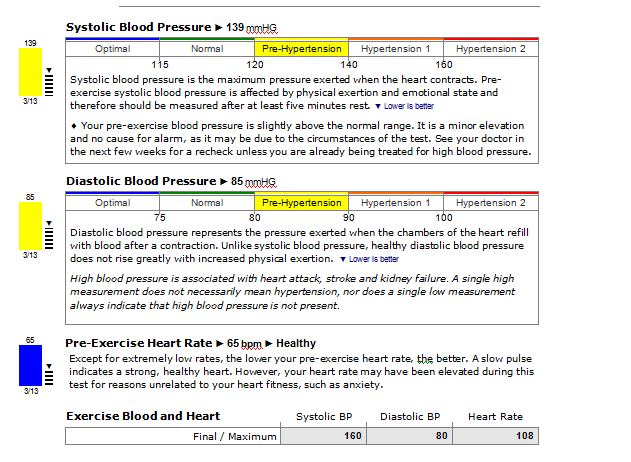All clients are required to fill out a Physical Activity Readiness Questionnaire (PAR-Q) prior to exercise. Health screening plays an extremely important role in identifying patients who are at high risk for developing disease, such as heart disease, stroke, diabetes, hypertension, cancer, etc. Screenings inform individuals of their own health and the necessary changes needed to maintain good health. Prior to exercise, heart rate and blood pressure should be measured for analysis as well as pre-screening purposes. If an individual has a pre-exercise heart rate greater than or equal to 95 bpm (beats per minute), this participant should not be tested and should consult a physician. Measuring blood pressure is another important form of health screening. Systolic pressure is the maximum pressure that occurs during peak ventricular contraction. A systolic pressure of 120 mmHg at rest and up to 200 mmHg following exhaustive exercise is normal for healthy adults. Diastolic pressure is the minumum pressure occuring just before ventricular contraction. Diastolic pressure remains relatively stable during exercise, so an individual should stop exercising if their diastolic pressure demonstrates fluctuations greater than 15 mmHg. Prior to exercise, if the resting systolic pressure is greater than or equal to 145 mmHg and/or the diastolic pressure is greater than or equal to 95 mmHg, the individual should not be tested and should consult a physician. Values for pre-exercise heart rate and blood pressure can be found below, as well as an interpretation of results.
